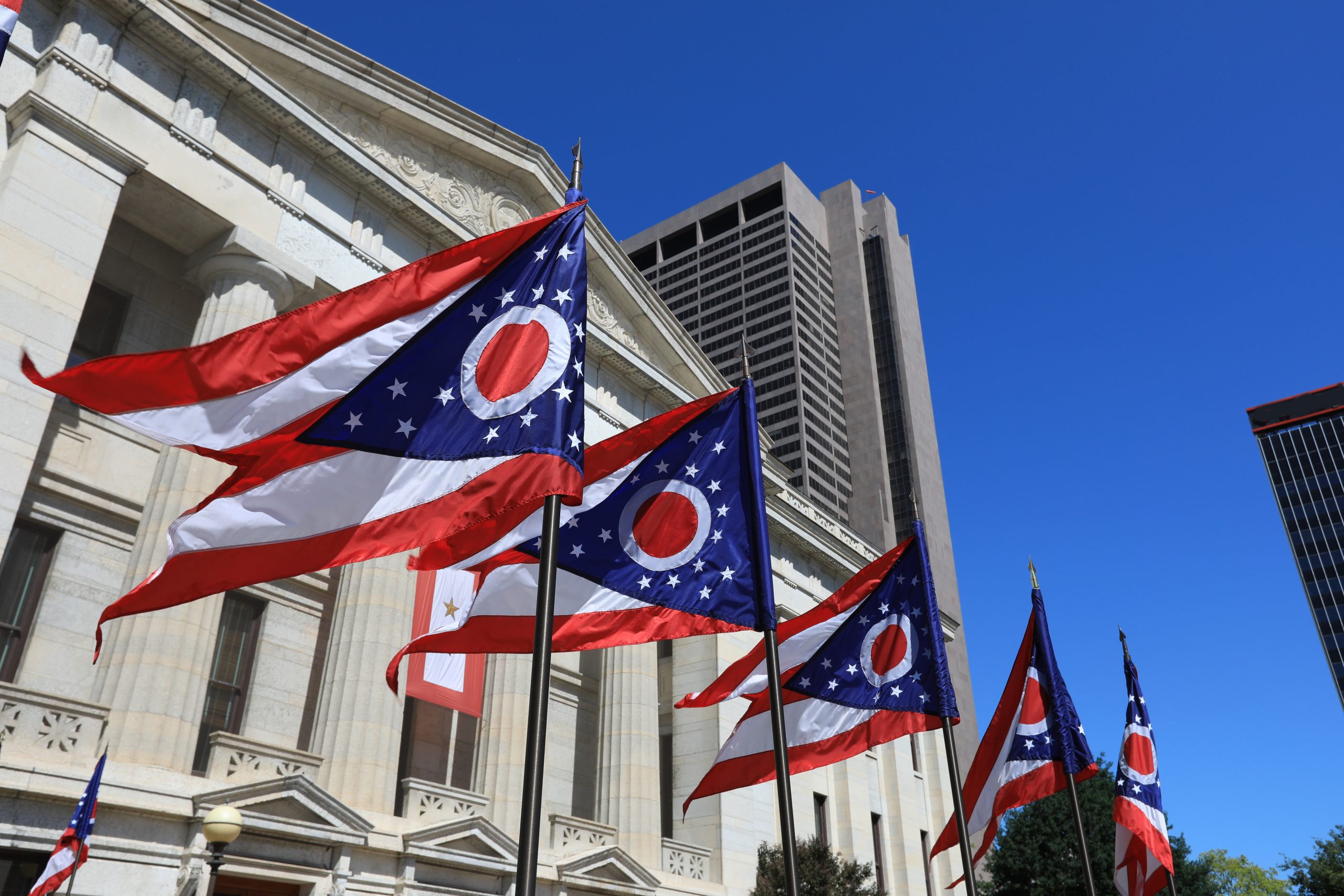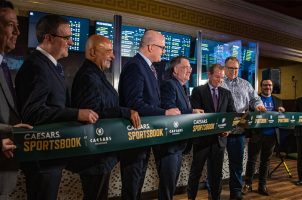Ohio Casino Control Commission Approves 10 Sports Betting Hosts
Posted on: September 21, 2022, 03:57h.
Last updated on: September 21, 2022, 04:50h.
The Ohio Casino Control Commission (OCCC) on Wednesday gave conditional approval during its meeting to 10 more proprietors seeking sports betting licenses.

Those entities were the Cincinnati Bengals, FC Cincinnati, MGM Northfield Park, Scioto Downs in Columbus, the Columbus Blue Jackets, the Cleveland Cavaliers, Hollywood Columbus Casino, the Cleveland Guardians, Hollywood Dayton Raceway, and Belterra Park in Cincinnati.
All except for the Bengals applied to host both online and retail sports betting operators. The Bengals and Betfred, the team’s gaming partner, have just applied for an online license. As one of the state’s major professional teams, the Bengals are considered a preferred applicant for both an online and a retail license, which led OCCC Vice Chair John Steinhauer to question the team’s decision.
As it currently stands, the NFL does not allow in-person sports betting at any stadium, so Betfred and the team chose not to pursue a type B license because of this,” Bengals In-House Counsel Emma Compton explained during the meeting, adding that mobile betting would be allowed in Paycor Stadium.
BetMGM has a sportsbook near State Farm Stadium, home of the NFL’s Arizona Cardinals. But that building is not physically attached to the Glendale facility.
Majority of Hosts Now Conditionally Approved
The OCCC has now given preliminary approval to 18 of the 22 applicants seeking to host mobile management service providers or online sports betting operators. It also approved 17 of the 26 applicants that are seeking to host management service providers or brick-and-mortar sportsbooks.
Those that have yet to be approved include the Pro Football Hall of Fame Village in Canton, Hard Rock Cincinnati Casino, the SPIRE Institute in Geneva, and Miami Valley Gaming and Racing in Lebanon. Those four seek to partner with both an online and retail sportsbook.
Others still seeking approval to host a retail book include Harry Buffalo, a Cleveland sports bar; Phantom Fireworks, which seeks a sportsbook in Youngstown’s multipurpose arena; Ravencrest Partners, which seeks to host a sportsbook on the Cleveland waterfront; Cedar Downs off-track betting parlor in Sandusky; and Lori’s Roadhouse; an entertainment venue in West Chester.
Ohio’s sports betting law gives preferences to casinos, racinos, and professional sports teams for proprietor licenses. But it does not exclude other entities from seeking them. The state will allow up to 25 proprietors to partner with online operators. It also caps the number of retail sportsbooks at 40, with only one location limited to the state’s 28 most populous counties. The exception is for a county with at least a population of 50,000 and that draws 5 million tourists annually.
A list of all proprietor applicants and their gaming partners can be found here.
The next OCCC meeting will take place on Oct. 5 in Columbus.
More Kiosk Hosts Approved
OCCC Executive Director Matt Schuler applicants still need to submit key personnel and holding company forms by Oct. 5 and have commission-accepted compliance materials turned in by Nov. 2 for them to start operations on Jan. 1.
Regulators have also approved more than 800 qualified Ohio Lottery retailers to serve as hosts for sports betting kiosks. However, Schuler noted that 550 retailers have received the lottery’s recommendation but have not yet submitted their applications.
To qualify to host kiosks, lottery retailers must be for-profit and hold one of three liquor licenses. Currently, the lottery has recommended 1,376 retailers for approval. While most are bars and restaurants, the lottery also has approved bowling alleys, golf courses, and grocery stores for kiosks.
Sports betting kiosks will operate differently from mobile sports betting apps and retail sportsbooks. Bettors will be limited to wagering no more than $700 in a calendar week through the machines. The kiosks also will only offer point spreads, moneyline, and totals. The machines also will limit parlays to just four legs.
Related News Articles
Betfred Pays Out Bengals Super Bowl Futures Bets Weeks Before Big Game
Sports Betting Roundup: Caesars, SuperBook Opens New Retail Sportsbooks
Most Popular
LOST VEGAS: ‘Tony The Ant’ Spilotro’s Circus Circus Gift Shop
Las Vegas Overstated F1 Race’s Vegas Impact — Report
Mega Millions Reportedly Mulling Substantial Ticket Price Increase
Las Vegas Strip Stabbing Near The Strat Leaves One Man Dead
Most Commented
-
End of the Line for Las Vegas Monorail
— April 5, 2024 — 90 Comments -
Mega Millions Reportedly Mulling Substantial Ticket Price Increase
— April 16, 2024 — 6 Comments -
Long Island Casino Opponents Love New York Licensing Delays
— March 27, 2024 — 5 Comments -
VEGAS MYTHS RE-BUSTED: You Can Buy Legal Weed On the Strip
— March 22, 2024 — 4 Comments
















No comments yet